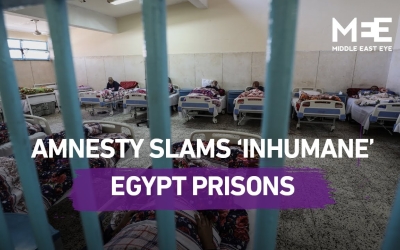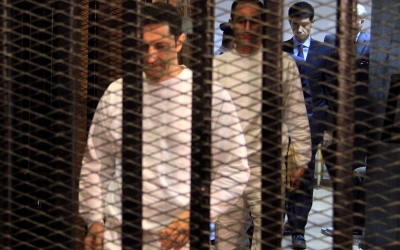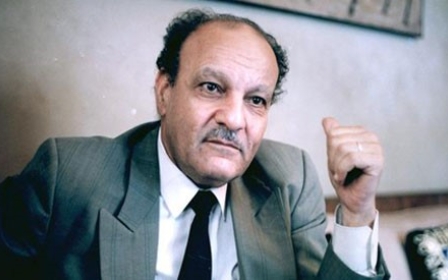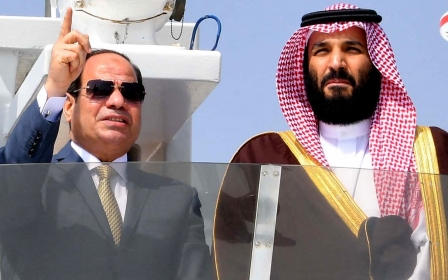Egypt: 'Homesick' journalist detained after return from exile in Turkey
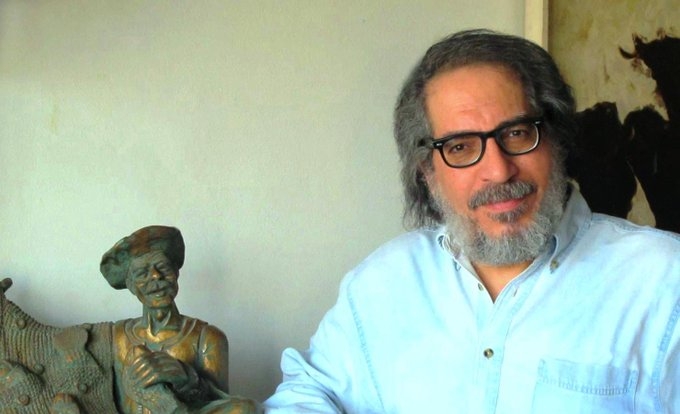
Egypt has ordered the pre-trial detention of journalist and government critic Gamaal el-Gamal after his return from Turkey, where he spent the past five years in self-imposed exile.
According to his lawyer Naser Amin, the Supreme State Security Prosecution on Sunday ordered Gamal to be detained for 15 days on charges of involvement with opposition media in Istanbul.
On 22 February, Gamal returned to Cairo voluntarily, according to his son.
'The incident just confirms that the fate of many dissidents abroad if they return home is to be abducted in the airport, forcibly disappeared,'
- Amr Magdi, Human Rights Watch
“My father was feeling unwell, and decided to come back to Egypt suddenly because he couldn’t bear the thought that he would never see me again,” his son wrote on Facebook, adding that his father was missing for over 24 hours after his arrival.
In recent years, Gamal has been known to be a critic of President Abdel Fattah el-Sisi, despite the journalist's initial support for his coup in 2013. Gamal was a columnist for the now-suspended outlet Tahrir news, then was suspended from writing a column for Al Masry Al Youm newspaper in 2015 due to his anti-government writings.
It was widely reported that in 2015 Gamal received a phone call from Sisi himself to express rejection of his critical writings.
In 2017, he traveled to Turkey, known to be a safe haven for the Egyptian opposition, and presented a TV programme on the opposition Al-Sharq channel for nearly two years but then stopped and thereafter only focused on writing posts on his Facebook page.
Gamal’s detention has garnered widespread condemnation by rights groups and opposition activists in exile.
Amr Magdi, Egypt researcher at Human Rights Watch, described Gamal’s detention as “shocking but not unexpected”.
"The incident just confirms that the fate of many dissidents abroad if they return home is to be abducted in the airport, forcibly disappeared and later interrogated by prosecution officials whose only job is apparently reduced to rubber-stamping whatever security agencies claim without any evidence,” he told Middle East Eye.
Opposition journalists Gamal Sultan, Zein Tawfik, and Wael Qandil have expressed solidarity with Gamal, while opposition politician Ayman Nour said Gamal took the decision to return to Egypt despite the high risks.
Nour, who had hired Gamal to work in his Al-Sharq channel in Istanbul, told MEE that he met the journalist several times before his departure, and that he warned him against travelling to Egypt.
"He was extremely homesick," Nour said. "But I tried to convince him that his decision was a dangerous one."
Nour added that he was concerned about Gamal's safety particularly due to his vulnerable health condition. He said that Gamal is in his late 60s, suffers from five chronic illnesses, including diabetes and hypertension, and may not survive the notoriously harsh prison conditions in his country.
"There is a high chance he might succumb to his sickness if he continues to be incarcerated," the head of the liberal Al-Ghad Party added. "I hold the authorities accountable for his life."
Amnesty International said in January that Egyptian authorities were deliberately denying political prisoners health care as a way of punishing dissent.
Another rights group, the Committee for Justice, said in its annual report on deaths in custody in Egypt in 2020 that at least 100 prisoners died in custody in Egypt last year mostly due to medical negligence.
The organisation told MEE that at least ten prisoners had died since the beginning of 2021 due to the same reason.
‘Come to Egypt’
In one of Gamal's posts in the summer of 2019, he expressed his wish to return to Egypt.
“I simply cannot remove from my mind the idea of going back to Egypt and confrontation from inside,” he wrote.
“I cannot cope outside my country. My role will not be more than being a parrot in the name of the revolution and inciting people from abroad, and this is not what I’d like to do. My role is to raise awareness, and I’ve paid the price for that.”
Following his arrest, Gamal’s friends widely shared a video by a pro-government journalist Nashaat al-Dihi, on his programme on Ten TV, urging Gamal to return to Egypt. “I personally tell Gamal, come to Egypt and be an opponent here,” Dihi said in response to Gamal’s Facebook post.
“I know that Gamal’s hands are not stained with blood. He never incited murder. He had an aggressive opinion, which I oppose, but it’s just an opinion.”
Egypt has initiated a number of trials against opposition journalists based in Turkey on various charges, including “spreading false news” and “joining a terror group”. Gamal, according to his lawyer, has been added to one of these cases, called “Mekameleen 2”.
The arrest of Gamal at Cairo airport is reminiscent of similar cases of journalists and activists, such as former presidential candidate Abdel Moneim Aboul-Fotouh, researcher Patrick Zaky and Al Jazeera journalist Mahmoud Hussein.
The international press freedom watchdog Reporters Without Borders (RSF) describes Egypt as one of the worst jailers of journalists worldwide, and ranks it at 166 in the 2020 World Press Freedom Index.
The group said that since Sisi’s military coup in 2013, the country’s media has been undergoing a process of “Sisification”, with a witch-hunt waged against opposition journalists and those who voice criticism online.
According to the Committee to Protect Journalists, as of 1 December 2020, there were 27 journalists imprisoned in Egypt for their work.
Middle East Eye propose une couverture et une analyse indépendantes et incomparables du Moyen-Orient, de l’Afrique du Nord et d’autres régions du monde. Pour en savoir plus sur la reprise de ce contenu et les frais qui s’appliquent, veuillez remplir ce formulaire [en anglais]. Pour en savoir plus sur MEE, cliquez ici [en anglais].


